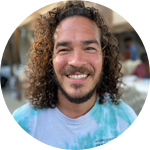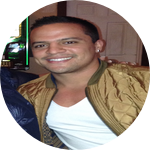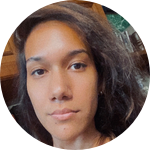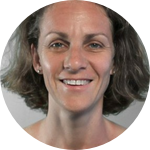About This Project
Scientific and historical research on the 30 years of French nuclear tests in French-occupied Polynesia have not seriously taken into account Indigenous perspectives which led to a constricted narrative that portray Maohi people as passive victims. And yet communities of survivors have stories replete with enduring resilience and wisdom to tell. Our team seeks to highlight their narratives of enduring resilience by collecting their stories before it becomes too late.
Ask the Scientists
Join The DiscussionWhat is the context of this research?
In the course of my (home) field research on anti-nuclear resistance and legacies in French-occupied Polynesia, I have come across many stories of Indigenous nuclear test survivors, elders and activists and their descendants replete with enduring strength and courage in their daily struggles of survival, reparation and simply living. These stories show a high degree of resilience in the face of complex and unequal power dynamics under ongoing French colonial rule and yet they have never been recorded.The future generations should know that behind nuclear testing and legacies and the threat it represents are people who try their best to survive, to live and to thrive. These ethnographic stories should be preserved as archival materials and shared to the wider public.
What is the significance of this project?
This project seeks to re-place and add-just narratives on nuclear tests legacies in French-occupied Polynesia from a Maohi perspective by prioritizing narratives of resilience retold in Tahitian (or any other Indigenous language). It begs the questions: what can we learn from this new perspective? How does it reframe the constricted and rampant victim-based discourse told by outsiders? How do Indigenous communities manage to heal? 25 years after the final nuclear test, it becomes crucial to collect oral stories that are sensitive to place-based communities and that encourage them to tell their own stories of survival but also their hopes and aspirations for the future. Indigenous futures are created now and it starts with stories: today's stories are tomorrow's histories.
What are the goals of the project?
Haunted by 30 years of forced silence and secrecy, Indigenous survivors, workers and witnesses of the French nuclear tests have long hesitated to talk about their experiences. Now that they are passing away, it becomes urgent to record their stories before it gets too late. This project aims at making sure that their underrepresented perspective are heard and shared widely. On top of sharing a body of archival materials in Indigenous languages on this period, it will offer new perspectives and insights on human resilience and indigenous wisdom that can be a source of inspiration for our present and future. We chose to do this by broadcasting their stories via creating a podcast. It provides listeners with the ability to dive into topics of interest that are easily accessible.
Budget
This budget outlines the essential costs to launch the first series of our podcast project over a period of 6 months, where we'll record, edit and launch the first 12 episodes, each will last 50-60min. We tried to budget it as cheaply as possible. It includes the technologies for recording with the costs entailed in sharing it online, the equipment features a 4-track audio recorder, a microphone Sennheiser mk416, a set of 2 wireless mics (Rode Go II), a set of 2 specific mics that allows us to enhance the recordings with an immersive sound and allows the audience to enter the interviewee's world, emotions and senses included. A great part of the budget is allocated to airfares (from Tahiti to the remote islands), which is really expensive yet we made a choice the islands of Mangareva, Nukutavake and Hao because of the contact already established with key community members who kindly offered to host us there.
Endorsed by
 Project Timeline
Project Timeline
The timeline is based on a 6-months period to launch our project. Thanks the preliminary work we have done, we have already met and identified potential interviewees not only on Tahiti but also on other remote islands. We decided to interview the people who first bore the brunt of nuclear legacies, communities who developed different ways to adapt and continue to live on atolls near the testing sites. Interviews will be conducted in person and will be semi-directed.
Dec 13, 2021
Project Launched
Dec 24, 2021
Identification of appropriate interviewees (get a list)
Jan 16, 2022
Travel to Mangareva
Feb 13, 2022
Travel to Nukutavake
Mar 17, 2022
Travel to Hao
Meet the Team
Team Bio
Mililani Ganivet
Born in Hawaii, I trace my genealogical ties to Tahiti (French-occupied Polynesia), I was raised in Taravao, a lush and small-town of Tahiti. I left for Paris at 17 where I earned a BA and MA from the Sorbonne (Paris IV). I am an Indigenous Tahitian graduate student at the Center of Pacific Island Studies at the University of Hawai'i at Mānoa, in the final year of my MA program. My research focuses on the histories and legacies of French nuclear tests in French Polynesia. When I am not reading or researching, I am either in the archives or in the ocean.
Marie-Helene Villierme
Born from a Tahitian father and Italian mother, I grew up on our ancestral family land in Mahina (Tahiti) with the ocean nearby. Growing-up, I was always surrounded by my relatives, my uncles and aunties would keep an eye on us while we would spend most of our time paddling in the ocean, playing in the yard with my cousins or simply sharing meals at the huge wooden table.
When I think about it, it really is my childhood that made me aware of the power of communities, the aroha shared and the lack thereof. When leaving for France for my studies, I remember the overwhelming feeling of longing for the long meals we would share at home and the nostalgia I felt which turned out to be an instrumental moment on my path, convincing me to record and capture the essence of community-building, endurance and collective memory; to keep a record of what endures and what brings people together and what remains, in an ever-changing world.
Ever since that moment, I have made photographic exhibitions that portray just that: the enduring ties that hold people together in times of change. My book Tangata: A Polynesian Community documents the atoll-based rural communities in the Tuamotu islands. My most recent documentary ''Pouvaana Te Metua'' that could be translated as "Pouvanaa the forefather follows the life and legacy of the first Tahitian nationalist and its influence on the contemporary Tahitian political culture in the post World-War II era.
My latest book The Witnesses of the Bomb (2013) features the testimonies of a myriad of different actors who lived through the 30 years of French nuclear tests in French Polynesia and who finally decided to lift the veil of silence and speak about their experiences. Bridging S/Pacific storytelling, I intend with this project to share stories of communities (I interact with and belong to) in the way to deposit legacies & short memorable stories that our children will hear as voices of our vivid (or living) memory.
Additional Information
We are committed to share the advancement of our work through lab notes with our funders and receive possible feedback in the process.
The video attached to this project features several extracts of interviews conducted in the past to record stories of survivors of the French nuclear tests for a book The Witnesses of the Bomb (2013). Their testimonies are an example of the resilience they shared captured in their life stories and experiences. The soundtrack is a Tahitian song written by the Tahitian intellectual Henri Hiro that recounts the devastating effects of the French nuclear tests conducted on the atolls of Moruroa and Fangataufa. It is sung by the leader and long-term antinuclear advocate Oscar Temaru in public in 2018.
Cover image: Tupuna and Nuuroa with a Puta Tupuna, by Marie-Helene Villierme, 2010.
Project Backers
- 27Backers
- 106%Funded
- $7,200Total Donations
- $266.67Average Donation



